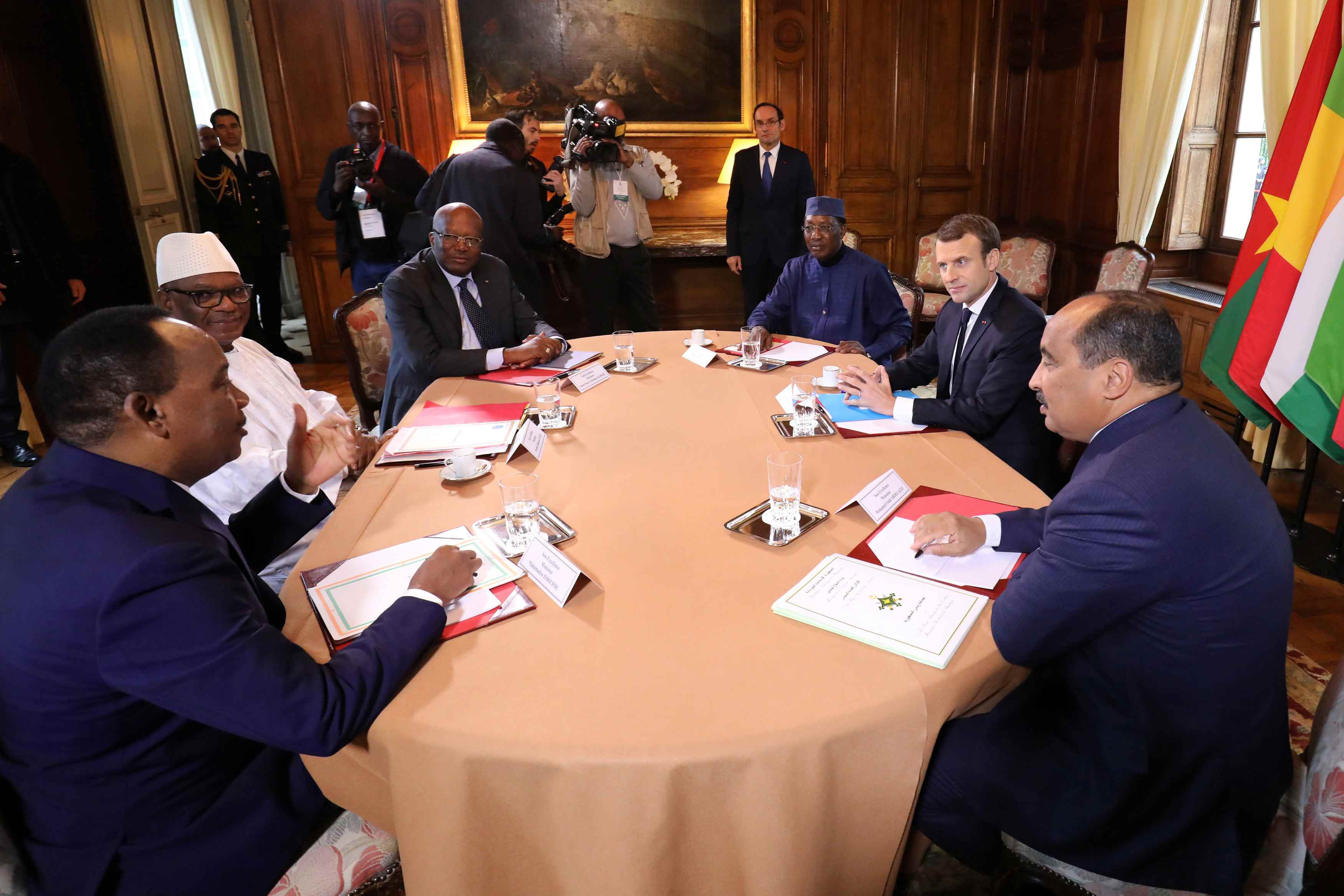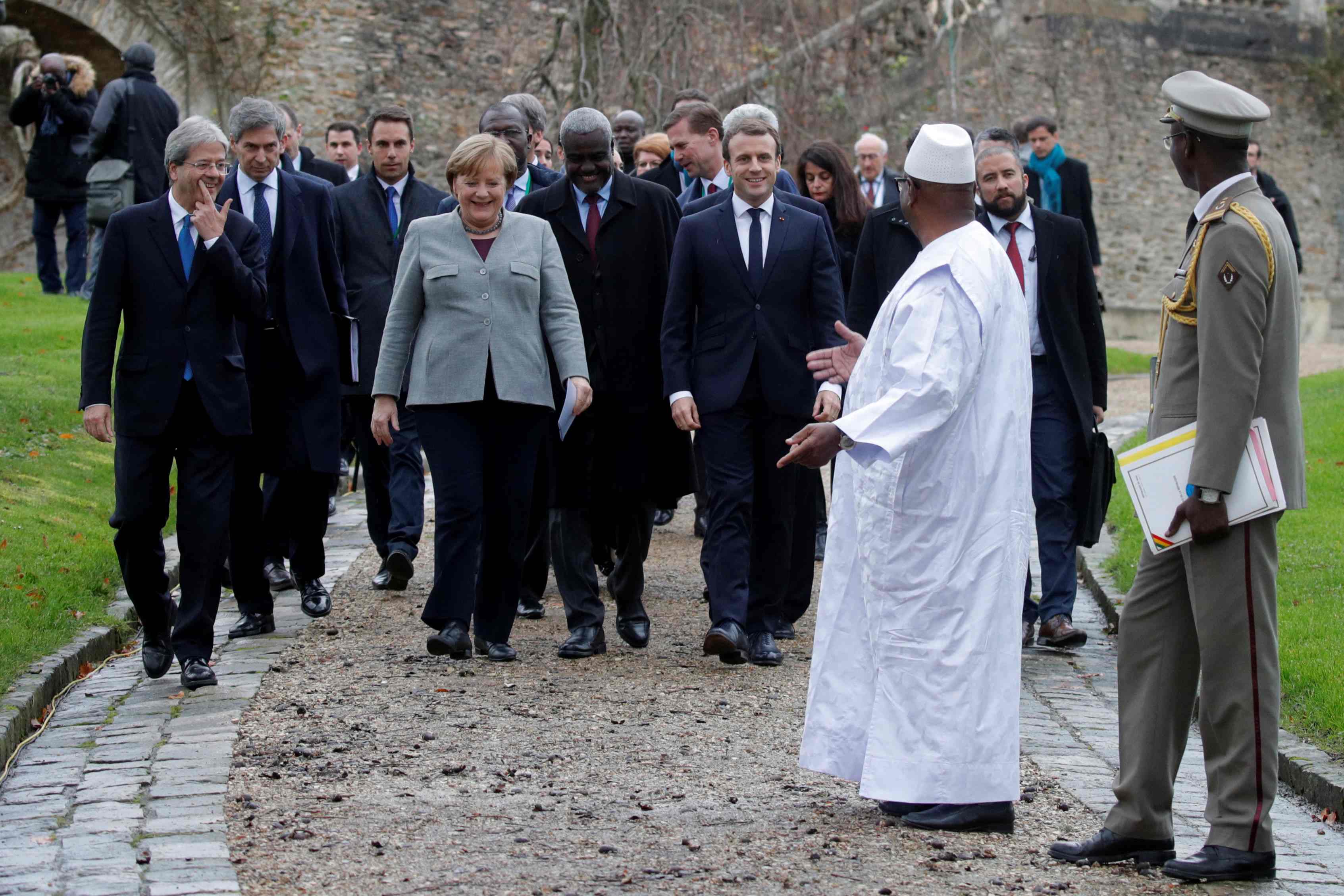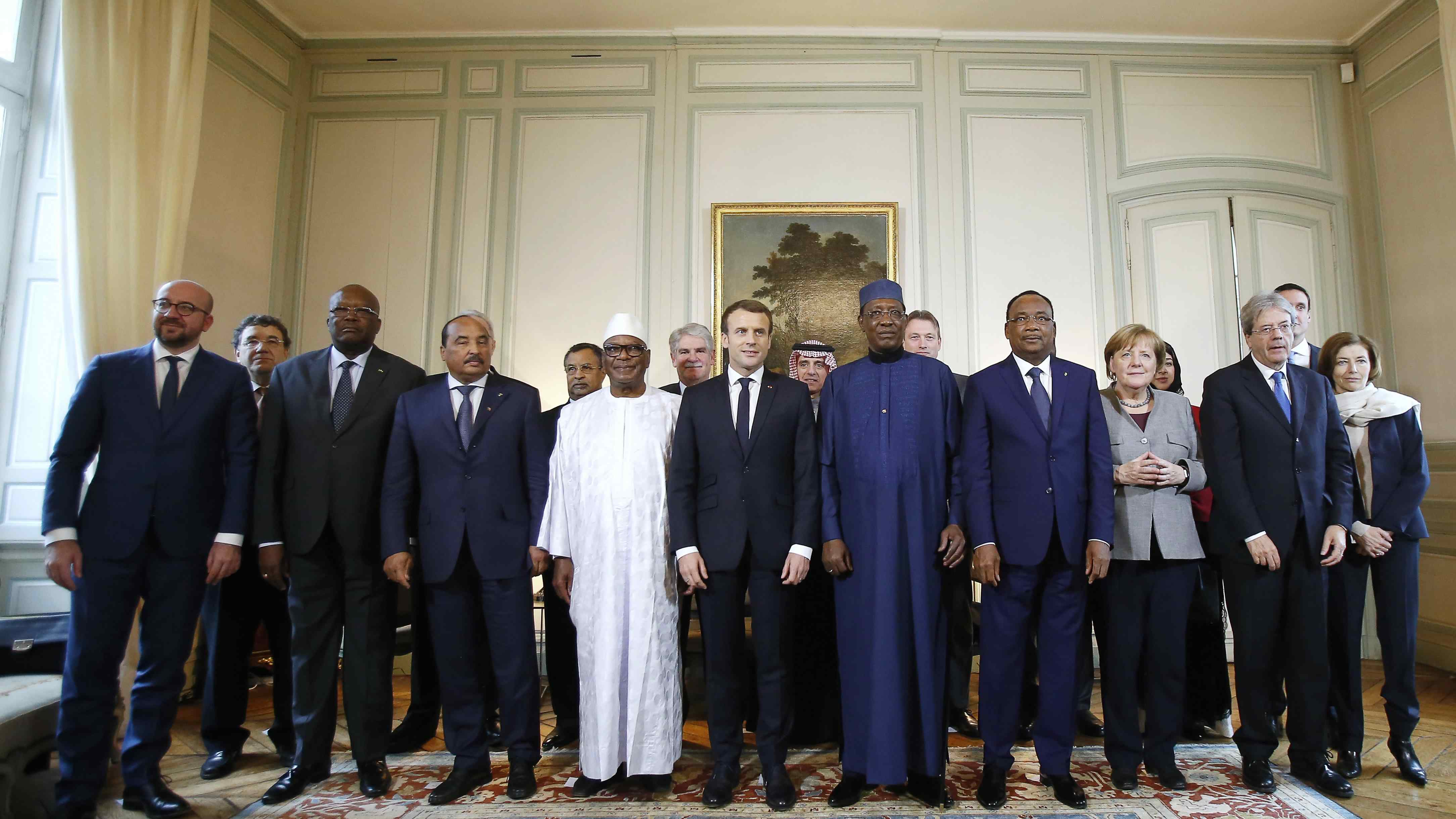France, Germany, Italy and the African Union joined the G5 Sahel countries – composed of the armies of Mali, Mauritania, Niger, Burkina Faso and Chad – in promising funds for a new joint task force, as leaders met in Paris to discuss how to fight Islamist terrorism in the Sahel region.
“The five G5 countries have promised to reinforce their presence in central Sahel, and that reinforcement will be both qualitative and quantitative, with an increase in troop numbers and commanders and an accelerated schedule, with operations planned for the first trimester of 2018,” French President Emmanuel Macron said.
In 2012, al-Qaeda linked jihadist groups seized swathes of territory in northern Mali, destroying historical sites and demolishing ancient tombs.
They were largely chased out by a French military intervention in January 2013; but almost five years on, the 4,000 French troops still on the ground in the Sahel don’t have the resources to end the terror threat.

French President Emmanuel Macron (2nd R) hosts a meeting with Burkina Faso's
President Roch Marc Christian Kabore, Chadian President Idriss Deby, Malian
President Ibrahim Boubacar Keita, Mauritania's President Mohamed Ould Abdel
Aziz, and Niger's President Mahamadou Issoufou ahead of the summit with leaders of
the G5 Sahel countries to discuss how to speed up the implementation of the G5
West African counter-terrorism force at La Celle-Saint-Cloud, near Paris, December 13, 2017. /Reuters Photo
French President Emmanuel Macron (2nd R) hosts a meeting with Burkina Faso's
President Roch Marc Christian Kabore, Chadian President Idriss Deby, Malian
President Ibrahim Boubacar Keita, Mauritania's President Mohamed Ould Abdel
Aziz, and Niger's President Mahamadou Issoufou ahead of the summit with leaders of
the G5 Sahel countries to discuss how to speed up the implementation of the G5
West African counter-terrorism force at La Celle-Saint-Cloud, near Paris, December 13, 2017. /Reuters Photo
Intelligence services estimate there are only between 500-800 jihadists active in the region; but their ability to disappear into a desert the size of Europe means they are still a serious problem for west African countries.
Al-Qaeda linked groups have carried out several attacks since the beginning of the French operation, the deadliest being a hostage taking that killed 20 at a hotel popular with foreigners in Bamako in November 2015.
The French army often lacks the local knowledge to track militants in the desert, while Mali itself, one of Africa’s poorest countries, isn’t able to invest in its own security.
A solution was first planned last year – the G5 Sahel Initiative – an ambitious scheme to deploy 5,000 troops from Burkina Faso, Chad, Mali, Mauritania and Niger in the central corridor of the Sahel desert.
That got a boost at a summit in Paris on Wednesday, with the European Union pledging 50 million US dollars and Saudi Arabia 100 million US dollars, to add to the existing cash promised by European and African countries.
Meanwhile, the danger is growing. African leaders fear that jihadist groups who have recently lost their foothold in the Middle East might try to re-establish themselves in north Africa.

Italian Prime Minister Paolo Gentiloni, German Chancellor Angela Merkel, African
Union Commission President Moussa Faki Mahamat, French President Emmanuel Macron
and Mali’s President Ibrahim Boubacar Keita arrive for a media conference during
a meeting to discuss how to speed up the implementation of the G5 West African
counter-terrorism force, in La Celle Saint-Cloud, near Paris, France, December
13, 2017. /Reuters Photo
Italian Prime Minister Paolo Gentiloni, German Chancellor Angela Merkel, African
Union Commission President Moussa Faki Mahamat, French President Emmanuel Macron
and Mali’s President Ibrahim Boubacar Keita arrive for a media conference during
a meeting to discuss how to speed up the implementation of the G5 West African
counter-terrorism force, in La Celle Saint-Cloud, near Paris, France, December
13, 2017. /Reuters Photo
The groups are also key players in the smuggling of arms and people across the desert, meaning security forces must disrupt their networks if they are to reduce the number of migrants arriving in Libya.
French President Emmanuel Macron told the summit the planned force has already taken too long to get down to work, announcing plans for operations to start in the early months of 2018.
The taskforce is based in Sevaré in northern Mali, and it recently carried out its first deployment in the border region encompassing Mali, Niger and Burkina Faso. Macron hopes the plan will allow him to draw down France's own troops over the course of next year.
But the financial contributions promised thus far still don’t add up to the estimated 300 million US dollars cost of launching the new task force. A summit planned for Brussels in February aims to persuade European and African nations to stump up the missing cash.




